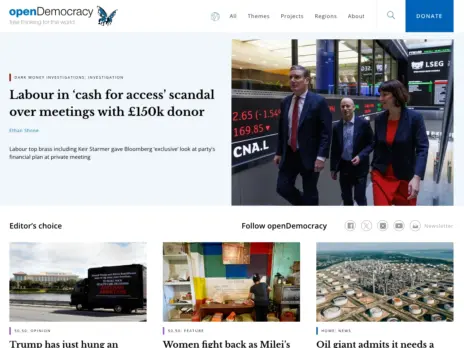
An order made by magistrates which banned the press from identifying a man who admitted possessing almost 700 indecent and pornographic pictures of children was overturned by a Crown Court judge after an application by two newspapers and the Press Association.
Magistrates at Chichester had made an order prohibiting the publication of anything which would identify 45-year-old Paul Matthews on the grounds that naming him could cause problems for his children.
The magistrates made the order at Matthews’ first appearance, and immediately transferred the case to the Crown Court.
The order said the court had considered the interests of justice and the administration of justice and taken into consideration “the relatively recent Paulsgrove disturbance (which is in the same locality), the view of the Child Protection Officers involved with both this case and the area, and the fact that the defendants’ (sic) children reside locally and attend the local school” and had concluded that the the order was “necessary to protect the children whilst not impacting upon the administration of justice”.
Press Association legal editor Mike Dodd wrote to the Crown Court to challenge the order, saying it was clear from the decision of a five-judge Court of Appeal in the case of R v Croydon Crown Court, ex parte Trinity Mirror and Others in February this year that such orders could not be made to protect paedophiles and those accused of making and possessing indecent pictures of children.
His submissions were supported by letters from The News, Portsmouth, and the Chichester Observer.
Judge William Wood, sitting at Chichester Crown Court on September 8, lifted the anonymity order, saying: “The reality is that there is no adequate justification to restrict publicity in the usual way. If the press choose to publish the name and the address of the defendant they can.
“The fact that his children might be in some difficulty as a consequence is, in light of the decision of a superior court, not a factor that I should be allowed to take into account.”
Matthews, of Cheshire Crescent, Tangmere, Chichester, was jailed for eight months, and ordered to go on to the sex offender’s register for 10 years.
The court heard that father-of-two Matthews, who admitted a total of 28 charges of making indecent images of children, downloaded the material from the Internet in 2003 when pop-ups had appeared on his computer screen, then transferred the images on to a compact disc.
Piers Power, defending, said the offences took place when Matthews was in “turmoil” and locked in a loveless marriage.
After the case Mark Acheson, deputy editor of The News, said: “We’re glad that the judge overturned an order that plainly was unlawful, given that it related to children who were not part of the proceedings.
“The precedent had already been established at the Court of Appeal and it is a pity that Chichester magistrates agreed to impose the order without the court first notifying journalists and therefore giving us an opportunity to contest its validity.”
In the Trinity Mirror case, the Court of Appeal made it clear that those charged with such offences had to be identified and that the fact that they had children was not a sufficient justification for giving them anonymity.
In a strong endorsement of the right of the press to report such cases fully, and of the public’s right to know about people who committed such offences, Sir Igor Judge, President of the Queen’s Bench Division, said:
“It is sad, but true, that the criminal activities of a parent can bring misery, shame, and disadvantage to their innocent children.
“Innocent parents suffer from the criminal activities of their sons and daughters. Husbands and wives and partners all suffer in the same way.
All this represents the further consequences of crime, adding to the list of its victims.
“Everyone appreciates the risk that innocent children may suffer prejudice and damage when a parent is convicted of a serious offence.
Among the consequences, the parent will disappear from home when he or she is sentenced to imprisonment, and indeed … there is always a possibility of the breakdown of the relationship between their parents.
“However we accept the validity of the simple but telling proposition put by the court reporter … that there is nothing in this case to distinguish the plight of the defendant’s children from that of a massive group of children of persons convicted of offences relating to child pornography.”
Upholding the anonymity order for the man charged with having child pornography to protect his children would be to countenance “a substantial erosion of the principle of open justice, to the overwhelming disadvantage of public confidence in the criminal justice system, the free reporting of criminal trials and the proper identification of those convicted and sentenced in them”, Sir Igor added.
Email pged@pressgazette.co.uk to point out mistakes, provide story tips or send in a letter for publication on our "Letters Page" blog






